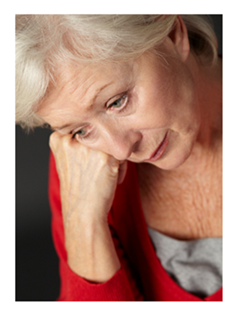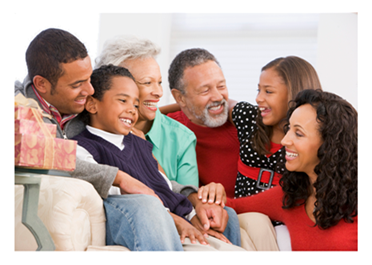We stigmatize any admission of loneliness. So we push away the feelings, we nod at the cheery platitudes, we cover up the sense of shame we feel at finding ourselves on our own, and we pin a smile on our faces as we downplay our angst, especially at the holidays.
 We know this is the lonely season for many: those who are still young but feel they ought to be part of a couple (and are not); those in empty marriages trying to make do (or feeling their lives simply don’t “measure up”); those who live far from loved ones, missing familial gatherings and traditions; those going through a breakup or its aftermath, divorce or its aftermath, widowhood or its aftermath; those who are aging and alone – too often, dismissed.
We know this is the lonely season for many: those who are still young but feel they ought to be part of a couple (and are not); those in empty marriages trying to make do (or feeling their lives simply don’t “measure up”); those who live far from loved ones, missing familial gatherings and traditions; those going through a breakup or its aftermath, divorce or its aftermath, widowhood or its aftermath; those who are aging and alone – too often, dismissed.
It is a widely held belief that depression and suicide rates increase this time of year, as a result of loneliness.
Some sources suggest this may be tied to Seasonal Affective Disorder (S. A. D.) as much as the magnification of feeling excluded, with pop culture and media reflecting a bustling and cozy reality that doesn’t resemble our own.
Whether it’s S.A.D. or loneliness or a combination of the two, what can we do to improve the situation? How do we create gifts of inclusion so friends, neighbors, and elders may find themselves feeling better – not worse?
Kill the Chill: Autonomic Responses
An interesting opinion piece in The New York Times on “Getting the Cold Shoulder” examines the physiological effects of loneliness.
Hans Ijzerman and Justin Saddlemyer write:
Research has shown that things like heart rate, levels of respiration and other involuntary physiological responses are affected by social connectedness…
A number of research groups… have reported that having the memory of being socially excluded — or just feeling “different” from others in a room — is enough to change our perception of the environment around us. Such feelings can prime individuals to sense, for example, that a room in which they’re standing is significantly colder than it is.
Referencing other studies addressing “social exclusion,” Ijzerman and Saddlemeyer mention ways in which the body can be “fooled into feeling welcome” by something as simple as touching warmth. The example they give is holding a cup of coffee, apparently enough to alleviate “autonomic responses” that come with feeling left out.
In case you’re wondering, autonomic responses are defined as follows:
… dynamic adjustments to the autoregulatory functions that keep us alive… changes in heart rate, blood pressure, sweating and pupil dilatation that are automatically generated by physical, cognitive and emotional behaviours and that index both conscious and subconscious processes. Autonomic responses are integrated most strongly with emotions…
Fighting Loneliness with Mind-Body Connection
 In light of these references to mind-body connection that deal with loneliness in a very tangible way, I consider my desire for clutching a steaming mug of tea or coffee when I’m feeling low. One more health benefit for that cup of Joe?
In light of these references to mind-body connection that deal with loneliness in a very tangible way, I consider my desire for clutching a steaming mug of tea or coffee when I’m feeling low. One more health benefit for that cup of Joe?
For that matter, I know how much better I feel when I treat myself to the comforts of hot soup when I’m having a bad day. That “treat,” it would appear, may actually be treatment – in every sense of the word.
As to the plague of holiday loneliness during in November and December, shouldn’t we also turn to the tangible benefits of touch – reaching out to take the hand of an elder or offering a genuine embrace to a lonely friend?
These acts of physical contact are humanizing; they are rarely rebuffed and are strongly connective. We think nothing of giving them to our children, yet we hesitate with adults, often worrying they will be misconstrued.
I recall a period in my post-divorce life when I lived nearly a year without so much as the occasional hug. I was bereft. I was depressed. When gestures of affection returned to my life, those feelings lifted.
Holiday Loneliness Rx?
Given my long-time experience as a single mother, I might recommend seeking to console other parents left to their own devices at the holidays. The “his turn / her turn” see-saw, so entrenched in our custodial system, can provide much needed time off, or leave us isolated and aching.
My concern is equally for our older citizens. We may pick up the phone and call out of obligation, but otherwise forget them amidst our own festivities. Couldn’t we consider including relatives in retirement communities? What about the elderly living in our neighborhoods, left to the quiet of their unvisited homes?
 I am not proposing sacrificing our holidays to people who are toxic or consistently disruptive. But exempting those individuals from the equation, couldn’t we breach our walls of “mine” and “ours,” not to mention visions of perfect celebrations?
I am not proposing sacrificing our holidays to people who are toxic or consistently disruptive. But exempting those individuals from the equation, couldn’t we breach our walls of “mine” and “ours,” not to mention visions of perfect celebrations?
What would it take to reach out and ask, in all sincerity, if others would like to join us in our holiday rituals?
Perhaps it’s writing cards, or shopping, or enjoying a holiday dinner. It may be as little as a lighthearted conversation over a hot cup of Breakfast Blend or if you prefer, Earl Grey. What if it’s that simple to spread the warmth of the season and even temporarily, ease loneliness?
Wolf you make some excellent points. I think exercise and vitamins are essential to combat any blues especially during the holiday season. I take multi vitamins and vitamin D in the winter months. Exercise, especially cardio, gets the “happy happy” endorphins flowing.
I have lived many places and seem to have contact with many foreigners when at home and abroad. I have always had positive experiences inviting foreigners and non-foreigners but away from home, to holiday functions. It breaks up the usual routine, the people are usually happy to come and you often learn new things about other people and places. While family may sometimes be reticent, they usually later say they enjoyed it.
I think religious ceremonies sometimes are a cure or helpful to those with the holiday blues. While I have thought, read, discussed and reflected on spirituality and religion a lot throughout my life, and even though I have difficulty with the church at this point in my life, I oddly have a certain level or peace and comfort at midnight mass on Christmas Eve. Regardless of whether it is nostalgic, an attempt at childhood simplicity, attempt to reconnect or seeking greater understanding it provides comfort to me, others who are religious and it seems especially the elderly.
Finally I think trying to see Christmas through a child`s eyes and as a child is phenomenal. You can also asked others to attempt this and if not then ask what their best Christmas experiences were as both a child and an adult.
In sum decorate, include others, socialize, hug, embrace others in your season, reflect on the good things in lfe, and enjoy the moment. Red wine and Grand Marnier never hurt either.
Exercise, taking care of ourselves, spirituality, putting ourselves in our children’s shoes… All excellent suggestions, Curtis. (As is a nice after dinner cocktail!)
3 hugs/day are the minimum needed for survival.
Three coins in the fountain, three hugs/day, three (or much more) nice words/day to someone… And staying as much active and positive as possible, if possible. The recipe is simple.
Feeling of isolation is unbearable especially in this time of year you’re right Wolfie.
As Dory fish (in unforgettable voice of Ellen DeGeneres) in Finding Nemo said: keep swimming, keep swimming! Aren’t we all?
It looks as if we were thinking about similar things today although how grateful I am to you that you are suggesting reaching out to others. For the millionth time, thank you for being yourself and sharing your gracious heart with us all.
xo,
H.
Heather, You’re such a sweetheart.
Thanks so much for writing about this. I have felt a good amount of loneliness throughout my life, despite living with full knowledge that many people love me. Strange how that could be possible?
I have a happy family life overall but I am missing those hugs (it’s complicated). Overall, though, this is my least lonely period to date, but I am trying to be mindful of the loneliness of others in my family of origin. It is so easy for me to, as you say, make a call out of duty but not really be mindful of them on a day to day basis. I wrap myself up in my own family now and I suppose I have convinced myself that there is only so much I can do for everyone else. So, thanks for this post…I need to do things a bit differently from now on.
When you have your own child or children, it really is a tough balance, Cecilia, and I don’t mean to imply otherwise. As women (and mothers), we’re often caring for others so much we allow ourselves to drop way down on the priority list. It’s hard finding the time, the energy, the will to reach out beyond duty when you just want a little pocket of “something” for yourself.
Still, from where I sit, though my circumstances were different (one of me, two kids, pretty much on my own), I wish I had done a better job of reaching out to certain individuals, or done so differently. We never know how much time we have with the older generation especially. Once they’re gone, it’s too late.
Wishing you a warm and affectionate holiday season. With as many hugs as you can possibly get.
Of course, I have to have a totally different take. I was interested to read what you had to say about loneliness because the thought that I had this morning was, “nothing can make me feel more lonely than other people.” And right now, what I’m craving most of all, as was once famously said, I want to be alone. I want to just feel what I feel without worrying what other people might say about it. And the thing that can make me feel worse right now is how some people are all “look on the bright side!” or some form of that. So if someone resists, maybe the best thing one can do is give them their space. Of course, let them know you’re there for them, but then let them be.
April, I have to grin at your comment. You know how I feel about those overly perky types who seem to think a smile and a positive attitude will fix anything and everything. While it helps (some people) at (some) times, I don’t think it’s appropriate in many instances. I do understand that sometimes people genuinely feel better if left alone. They certainly ought to be allowed their private time, I quite agree.
Now I miss my parents. Darn. My dad turned 81 yesterday. My mom’s 80. They’re both travelling to my sister in San Diego for Christmas. So they’re taken care of, you know, checked off the list, because they won’t be alone. But I wish i was with them. As well as my kids. As well as any ONE of those granddaughters. But some holidays are just “quieter” than others and Curtis’ comment about just reflecting on the good things in life is so true.
You’ve hit on so many important and helpful and honest things here. Reaching out to others – so good for what ails you. And touch. SO important. We never know how long it may have been since someone has had a hug. Or been touched. It’s such a balm.
And I’ve said it before and been harping on it….but have you SEEN those Smirnoff’s winter flavors? My husband handed me a brown bag a couple days ago with the fluffed marshmallow bottle inside. Now I have to love him forever.
You have me SO intrigued with the Smirnoff, Barbara! (I may have to ask the Elves for the petite-size version, just to try it!)
My therapist said to me “the holidays are about loss.” And I looked at her cross-eyed. I was confused. I loved the holidays. It’s my favorite time of year. But it is also the most stressful for me. And then in January, because I’ve stuffed all those feelings of loss and masked them in wrapping paper, sprinkles and song, I suffer from “the blues” like no other time of year. Now I get what she meant.